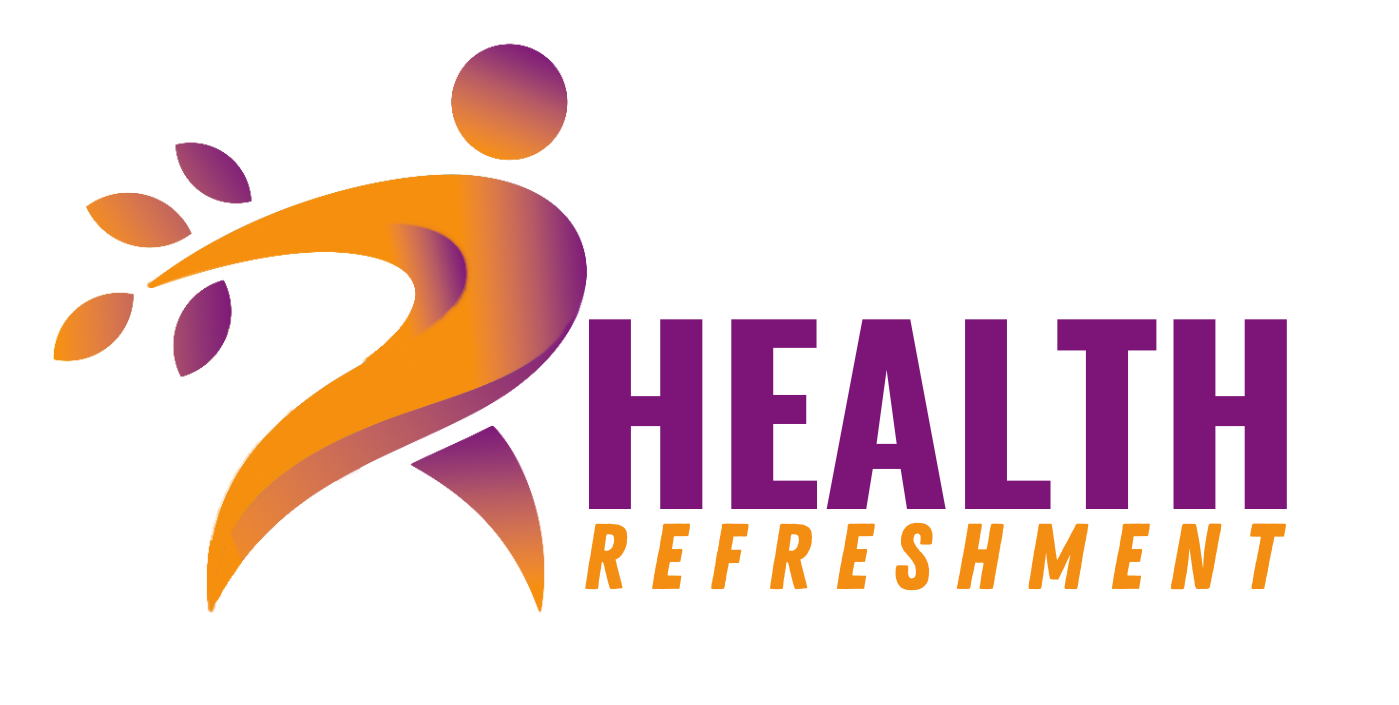Transform Your Health with Expert Nutrition & Diet Tips
Introduction
A healthy lifestyle is often a gruelling battle in today’s fast-paced world. But fear not; changing your fitness is a challenging task. By arming yourself with expert nutrition diet tips, you can take control and make meaningful changes to improve your well-being, setting yourself on a healthier, happier life.
This comprehensive guide is a collection of theories and a practical toolkit to help you achieve your health goals. From understanding the basics of a balanced diet to debunking common dietary myths, this guide is packed with actionable advice and insights. Whether you’re looking to lose weight, boost your energy levels, or feel better every day, the tips you’ll find here are designed to be practical, effective, and easy to implement, making your health journey a manageable and rewarding one.

1: The Foundation of Nutrition & Diet
Empower yourself with the knowledge of the basics of nutrition diet tips. This understanding is the first step towards making informed choices that will positively impact your overall well-being, putting you in the driver’s seat of your health journey.
Balanced Diet:
A level diet is the cornerstone of fine health. It involves consuming various foods in the right proportions to ensure your body gets the essential nutrients it needs. These contain macronutrients (carbohydrates, proteins) and micronutrients (vitamins and minerals) are Found. A well-balanced diet provides the energy required for daily activities, supports bodily functions, and helps maintain a healthy weight.
Nutrient-rich foods:
Including nutrient-rich foods in your diet is crucial for better health. These foods are high in vitamins, minerals, and other beneficial compounds but relatively low in calories. Models enclose fruits, vegetables, all seeds, lean proteins, and healthy lard. By focusing on nutrient-rich foods, you can ensure your body gets nourishment without overloading on empty calories.
Dietary Guidelines:
Following nutritional guidelines can help you make healthier food choices. These guidelines are based on scientific evidence and provide recommendations on what to eat and how much to eat to maintain a healthy weight and reduce the risk of chronic diseases. The key is to consume various foods from all food groups in the right amounts.
Healthy Eating Habits:
Healthy eating habits are not about restrictions but about freedom. This includes eating regular meals, controlling portions, and avoiding mindless snacking. By listening to your body’s hunger and fullness cues, you can enjoy a variety of foods without overeating, feeling liberated from the constraints of restrictive diets.
2: Personalized Nutrition Plans
Recognize that no two people are the same, and neither are their nutritional needs. Customizing your diet to meet your needs can significantly impact your fitness and overall well-being, making you feel understood and catered to.
Personalized Diet:
A personalized diet considers your needs, preferences, and lifestyle. This approach recognizes that age, gender, activity level, and health goals can influence your nutritional requirements. By working with a nutritionist or dietitian, you can develop a personalized diet plan that meets your specific needs and supports your health objectives.
Dietary Needs:
Your dietary needs can change over time, depending on various factors such as age, pregnancy, or underlying health conditions. Adjusting your diet is essential to ensure you get the proper nutrients. For example, pregnant women may need more folic acid and iron, while older adults may require more calcium and vitamin D to support bone health.
Meal Planning:
Effective meal planning is a critical component of a personalized nutrition plan. It involves selecting nutritious meals and snacks that align with your dietary needs and goals. Meal planning can help you save time, reduce food waste, ensure a balanced diet, and avoid the temptation of unhealthy food choices.
Portion Control:
Portion control is essential for maintaining a healthy weight and preventing overeating. Consuming more than you need is easy, especially when dining out or eating packaged foods. Recognizing appropriate portion sizes and using tools like measuring cups or a food scale can help you stay on track.

3: Importance of Whole Foods
Whole foods are a vital part of a healthy diet. They are minimally processed and packed with nutrients that support overall health.
Whole Foods:
Whole foods are as close to their natural state as possible. They are free from added sugars, harmful fats, and artificial components. Whole foods include fruits, vegetables, grains, nuts, seeds, and lean proteins. Eating a diet rich in whole foods can help you get the nutrients your body needs while reducing your intake of harmful additives.
Natural Ingredients:
Choosing foods with natural ingredients over processed options is a simple way to improve your diet. Natural ingredients are typically more nutritious and free from harmful chemicals and preservatives. When grocery shopping, look for products with short ingredient lists and avoid items you can’t pronounce, such as ‘whole wheat flour’ instead of ‘enriched wheat flour ‘.
Organic Foods:
Organic foods are grown without synthetic pesticides, fertilizers, or genetically modified organisms (GMOs). While organic foods may be more expensive, they are often considered healthier because they are free from harmful chemicals. Additionally, organic farming practices are better for the environment, making them a more sustainable choice.
Plant-Based Diet:
A plant-based diet is rich in plant-based meals such as fruits, vegetables, legumes, nuts, and seeds. This diet has numerous health benefits, including a lower risk of chronic diseases, better weight management, and improved digestion. Even if you’re not ready to go entirely plant-based, incorporating more plant-based meals into your diet can positively impact your health.
4: Expert Tips for Weight Management
Maintaining a healthy weight is crucial for overall health and well-being. Here are some talented tips to help you control your weight.
Weight Loss:
Weight loss is often a primary goal for many people looking to improve their health. Yet, it’s essential to achieve weight loss healthily and sustainably. Crash diets and extreme calorie restriction can do more harm than good. Instead, focus on making incremental changes to your diet and lifestyle that you can sustain over the extended term.
Weight Management:
Weight management is about balancing the calories you burn and the calories you burn. This involves paying attention to your diet, staying active, and making lifestyle choices that support a healthy weight. It’s also important to remember that weight management is not just about the number on the scale but also about how you feel and your body functions.
Metabolism:
Your metabolism recreates a vital role in weight control. It refers to the process by which your body converts food into energy. Elements such as years, gender, and genetics can affect your metabolism. While you can’t change some of these factors, you can boost your metabolism through regular exercise, eating smaller, more frequent meals, and staying hydrated.
Calorie Control:
Calorie control is essential for weight management. It would help you consume the right calories for your age, gender, activity level, and weight goals. While cutting calories can help you lose weight, you should do so without depriving your body of essential nutrients. Focus on nutrient-dense foods that provide the energy you need without excess calories.

5: The Role of Hydration
Hydration is often overlooked, but it’s critical to good health. Staying adequately hydrated can support your body’s functions and enhance overall well-being.
Hydration:
Hydration provides your body with the water it needs to function correctly. Water is essential for digestion, circulation, temperature principles, and nutrient absorption. It also plays a role in maintaining healthy skin and preventing dehydration.
Water Intake:
Drinking enough water each day is crucial for staying hydrated. The water you need can vary depending on age, activity level, and climate. A general guideline is to drink at least eight glasses of water daily, but you may need more if you’re physically active or live in a hot environment.
Fluid Balance:
Fluid balance refers to the balance of fluids in your body. It’s essential to maintain this balance to support bodily functions. Drinking too little water can lead to dehydration while drinking too much can cause an imbalance in electrolytes. Listening to your body’s thirst signals and drinking water regularly throughout the day is essential.
Electrolyte Balance:
Electrolytes are minerals that support and regulate liquid equilibrium in your body. They include sodium, potassium, calcium, and magnesium. Maintaining the right balance of electrolytes is essential for hydration, muscle function, and overall health. You can get electrolytes from bananas, oranges, leafy greens, and electrolyte drinks.
6: Gut Health and Nutrition
Gut fitness plays an essential role in public health and well-being. A healthy gut can support digestion, boost the immune system, and influence mood.
Gut Health:
Gut health guides the health of your digestive method, including your abdomen and intestines. A healthy gut is essential for breaking down food, absorbing nutrients, and eliminating waste. It also plays a role in maintaining your resistance system and general health.
Probiotics:
Probiotics are helpful bacteria that promote gut health. They can help suspend the bacteria in your gut, enhance digestion, and boost your resistant system. Probiotics are found in fermented foods such as yoghurt, kefir, sauerkraut, and kimchi. You can also take probiotic supplements to support your gut health.
Digestive Health:
Good digestive health is essential for overall well-being. It involves the proper functioning of your digestive system, including the breakdown of food, absorption of nutrients, and elimination of waste. A fibre-rich diet is essential to support digestive health, and remaining hydrated and avoiding processed nutrition are necessary.
Fiber-Rich Foods:
Fibre is an essential nutrient that supports digestive health. It assists in keeping your digestive method running smoothly by encouraging regular bowel activities

7 Common Dietary Myths Debunked:
With so much information available about nutrition diet tips, it’s easy to get confused by common myths. One prevalent myth is that carbs are always bad for you. Carbohydrates are a vital energy source, especially when choosing complex carbs like whole grains and vegetables. Another myth is that all fats should be avoided. The truth is that healthy fats, such as those found in avocados, nuts, and olive oil, are essential for brain function and overall health. Debunking these myths helps you make more informed choices and avoid unnecessary dietary restrictions that can lead to nutrient deficiencies.
8 Practical Tips for Everyday Eating:
Combining healthy eating habits into your everyday practice doesn’t have to be complicated. Start by making small, manageable changes, such as adding more vegetables to your meals or swapping sugary drinks for water. Preparing meals can also help you make nutritious choices and sidestep last-minute temptations. Keep healthy snacks on hand to prevent hunger from driving you toward unhealthy options. Remember, consistency is vital—the everyday habits build up over time, leading to long-term success in maintaining a healthy diet.
9 The Impact of Food on Mental Health.
What you eat impacts your physical health and affects your sanity’s well-being. Certain nutrients, like omega-3 fatty acids, have been shown to improve mood and cognitive function. On the other hand, a diet high in processed foods and sugars can contribute to anxiety, depression, and fatigue. You can support your mental health by focusing on a balanced diet rich in whole foods. Incorporating fatty fish, leafy greens, and nuts can help boost brain health, improve concentration, and promote a more positive mood.

10 Long-Term Benefits of a Balanced Diet:
A balanced diet offers numerous long-term benefits beyond just maintaining a healthy weight. A diet fatty in fruits, vegetables, whole grains, and poor proteins can decrease the risk of chronic disorders such as heart disease, diabetes, and certain cancers. Additionally, it supports healthy ageing by providing the nutrients needed for bone health, cognitive function, and immune support. Over time, a balanced diet can improve energy levels, sleep, and overall quality of life. The key is to focus on sustainable changes that you can maintain for the long haul rather than quick fixes.
Conclusion
Transforming your health through expert nutrition and diet tips is not just about making temporary changes—it’s about adopting sustainable habits that can enhance your overall well-being for the long term. By focusing on a balanced diet, incorporating nutrient-rich and whole foods, and tailoring your nutrition plan to your unique needs, you can set the foundation for a healthier lifestyle.
Good nutrition is not one-size-fits-all; it requires understanding and responding to your body’s needs with thoughtful, informed choices. Whether you aim to manage your weight, improve your gut health, or feel more energized, the proper diet can be a powerful tool in achieving your health goals.
Incorporating these tips into your daily routine may seem challenging initially, but with persistence and commitment, you’ll start seeing the benefits. Take it one step at a time, and don’t hesitate to seek guidance from nutrition experts. Your journey to better health begins with the decisions you make today—so choose wisely, eat mindfully, and watch as your health transforms for the better.
Recent Post
-
 Top 20 Tips to Improve Your Sleep When Times Are Tough
Top 20 Tips to Improve Your Sleep When Times Are Tough -
 Boost Your Mental Health with Mindfulness and Meditation Practices | Tips 2024
Boost Your Mental Health with Mindfulness and Meditation Practices | Tips 2024 -
 Stress Management Tips and Tricks | 100% Best Solutions of Stress
Stress Management Tips and Tricks | 100% Best Solutions of Stress -
 Depression and Anxiety | 10 Best Treatments for Depression & Anxiety
Depression and Anxiety | 10 Best Treatments for Depression & Anxiety -
 Weight Lose Fast: Scientific and Sustainable Lose Weight Top 15 Tips
Weight Lose Fast: Scientific and Sustainable Lose Weight Top 15 Tips -
 Transform Your Health with Expert Nutrition & Diet Tips
Transform Your Health with Expert Nutrition & Diet Tips -
 #1 Natural and Medical Treatments for Sleep Disorders: A Complete Guide
#1 Natural and Medical Treatments for Sleep Disorders: A Complete Guide -
 #1 Enhance Your Energy with These Exercise and Fitness Tips
#1 Enhance Your Energy with These Exercise and Fitness Tips -
 Choosing Why Sleep Is Important for Cognitive Health
Choosing Why Sleep Is Important for Cognitive Health -
 Tips for Improving Mental Health and Well-being
Tips for Improving Mental Health and Well-being -
 How to Improve Your Physical Health for Overall Wellbeing
How to Improve Your Physical Health for Overall Wellbeing
